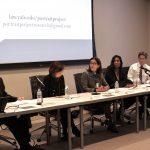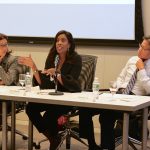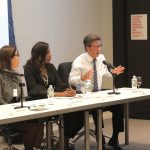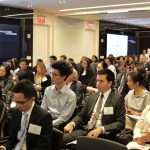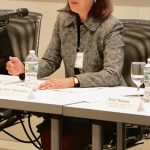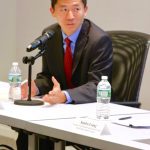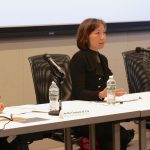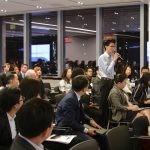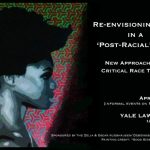Washington, DC (August 6, 2025) — The NAPABA Law Foundation (NLF) announced today that three exceptional second-year law students have been awarded SAIL Scholarships for their outstanding professional promise and leadership potential:
- Justin Chock, Yale Law School, is an editor of the Yale Law Journal and the Yale Journal on Regulation; co-chair of the Native American Association; and professional development co-chair of the Veterans Association. He received an M.Phil. in international relations from the University of Oxford, which he attended on a full scholarship, and a B.S. in political science with honors from the U.S. Naval Academy. Prior to law school, Justin served as a gunnery and ordnance officer on a U.S. Navy destroyer; chief military liaison with the U.S. Forces Japan Intelligence Directorate; and a master instructor in political science and cyber science at the U.S. Naval Academy.
- Jason Huang, Arizona State University, Sandra Day O’Connor College of Law and Watts School of Public Policy, is a joint J.D./M.P.P. student and president of the St. Thomas More Society; vice president of the Federal Bar Association; 1L rep for the Disabled Law Students Association; and a member of the Asian Pacific American Law Students Association. Jason has received numerous awards during law school, including the Thomas Tang Scholarship. Previously an emergency medical technician for Medstar Solutions and a combat engineer with the Army National Guard, Jason received his B.A. in liberal arts from Thomas Aquinas College in Santa Paula, California.
- Heajune (June) Lee, Harvard Law School, is executive vice president of the Harvard National Security & Law Association and public interest chair of the Korean Association. She has served as co-lead for the North Korea Cyber Working Group, program coordinator and research assistant with the Carnegie Endowment for International Peace, a consultant with Booz Allen Hamilton, and a cyber policy advisor with the U.S. Department of Defense. June received her B.A. in international relations, with a minor in computer science, from Stanford University, where she received the William J. Perry Prize for excellence in policy-relevant research.
“Jason, June, and Justin exemplify academic excellence, leadership in their schools, and a deep commitment to their communities,” said NLF President Bonnie Wolf. “NLF and SAIL are proud to support their journeys toward legal careers and public service, knowing they will continue to uplift and advocate for their communities along the way.”
“We are excited to welcome Justin, Jason, and June into the sixth cohort of SAIL Scholars,” said Ivan Fong, who, with his wife Sharon, endowed the NLF SAIL Scholarship program. “Each of them shows great promise as a leader who gives generously of their time and effort to the broader community. We could not be more delighted to help them as they complete their academic work and become part of the next generation of leaders in our profession.”
Two unique aspects of the SAIL Scholarship program are that, in addition to monetary support, SAIL Scholars will also receive mentoring and leadership development from each other and from a network of legal and community leaders. “A second feature of this scholarship program,” said Sharon Fong, “is that the recipients commit to ‘paying it forward’ — by supporting each other, future SAIL Scholars, and the communities in which they will live and work.”
The 2025 NLF SAIL Scholarship selection committee was comprised of Suzan Chau, Supervising Attorney for the Elder Justice & Civil Resource Center for the First Judicial District of Pennsylvania; the Honorable Theodore Chuang, U.S. District Judge for the District of Maryland; Esther Lim, Partner and Chief Community Officer at Finnegan; and Caroline Tsai, Executive Vice President, Chief Legal and Corporate Affairs Officer at FIS.
NLF is a 501(c)(3) non-profit that carries out its work primarily by awarding scholarships and fellowships that promote the interests of the Asian Pacific American community. Since its founding, the Foundation has awarded more than $500,000 in scholarships and nearly $1 million in fellowships and internships.
For more information about NLF and the SAIL Scholarship program and application process, please visit napabalawfoundation.org/scholarships.


